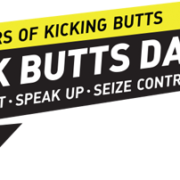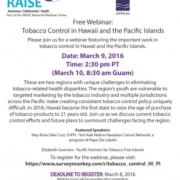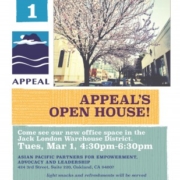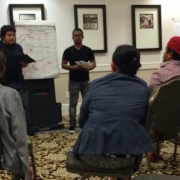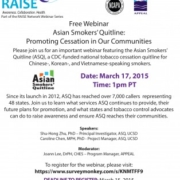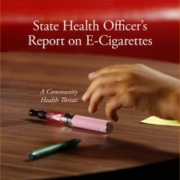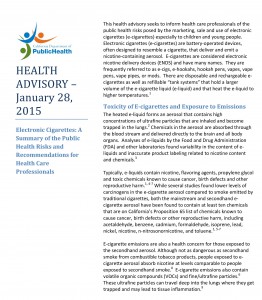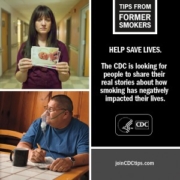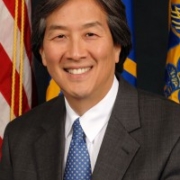Tobacco is the single-greatest, preventable source of death and disease among racial and ethnic minorities in the United States. Tobacco companies continue to target communities of color and, in particular, youth with menthol and other flavor additives. Let’s chat about that, shall we?
Kick Butts Day is a national day of activism that empowers youth to stand out, speak up, and seize control against Big Tobacco. This Kick Butts Day on March 16, 2016, 1-2 p.m. (Pac) APPEAL is gathering groups dedicated to fighting the effects of tobacco for a Twitter chat (#KickButtsChat) aimed at bringing the key goals of Kick Butts Day to our diverse communities of color:
- Raise awareness of the problem of tobacco use in our communities;
- Encourage youth to reject the tobacco industry’s deceptive marketing and stay tobacco-free; and
- Urge elected officials to take action to protect kids from tobacco.
We hope you’ll join us and some of the key networks working toward the health of communities of color for #KickButtsChat on Twitter, March 16, 1-2 p.m. (Pac).
Some of the questions we’ll ask are:
- How does tobacco use affect our communities? Youth prevalence? (Stats, disease prevalence, etc.)
- Do menthol and other flavorings pose a threat to youth in the general population and youth in our communities in particular and, if so how?
- What are the most commonplace and/or events where tobacco product marketing occur to reach youth/teens frequently in your city, town, or community and are incentives associated with tobacco use?
- What are some of the most relevant spokespersons, celebrities, or figures (e.g. relatives, peers) who use some form of tobacco that youth/teens identify with or influenced by?
- Effective resources for cessation?
- Any upcoming tobacco control events to promote by us and/or the other networks?
We’re hoping that responses will be specific to each community and really draw out resources and strategies that are culturally/linguistically appropriate for particular communities of color.
Featured participates for the chat include:
@KeepItSacred – National Native Network
@nationalcouncil – National Council for Behavioral Health
@SelfMadeHealth – Self Made Health Network
@AAHC_HOPEClinic – HOPE Clinic, Houston
@Health4Americas – Nuestras Voices Network – National Alliance for Hispanic Health
@LGBTHealthLink – LGBT Health Link, a program of Center Link
@NAATPN – NAATPN, Inc.
@GeoHealthAlliance – Geographic Health Equity Alliance
@tobaccofreekids – Campaign for Tobacco-Free Kids

